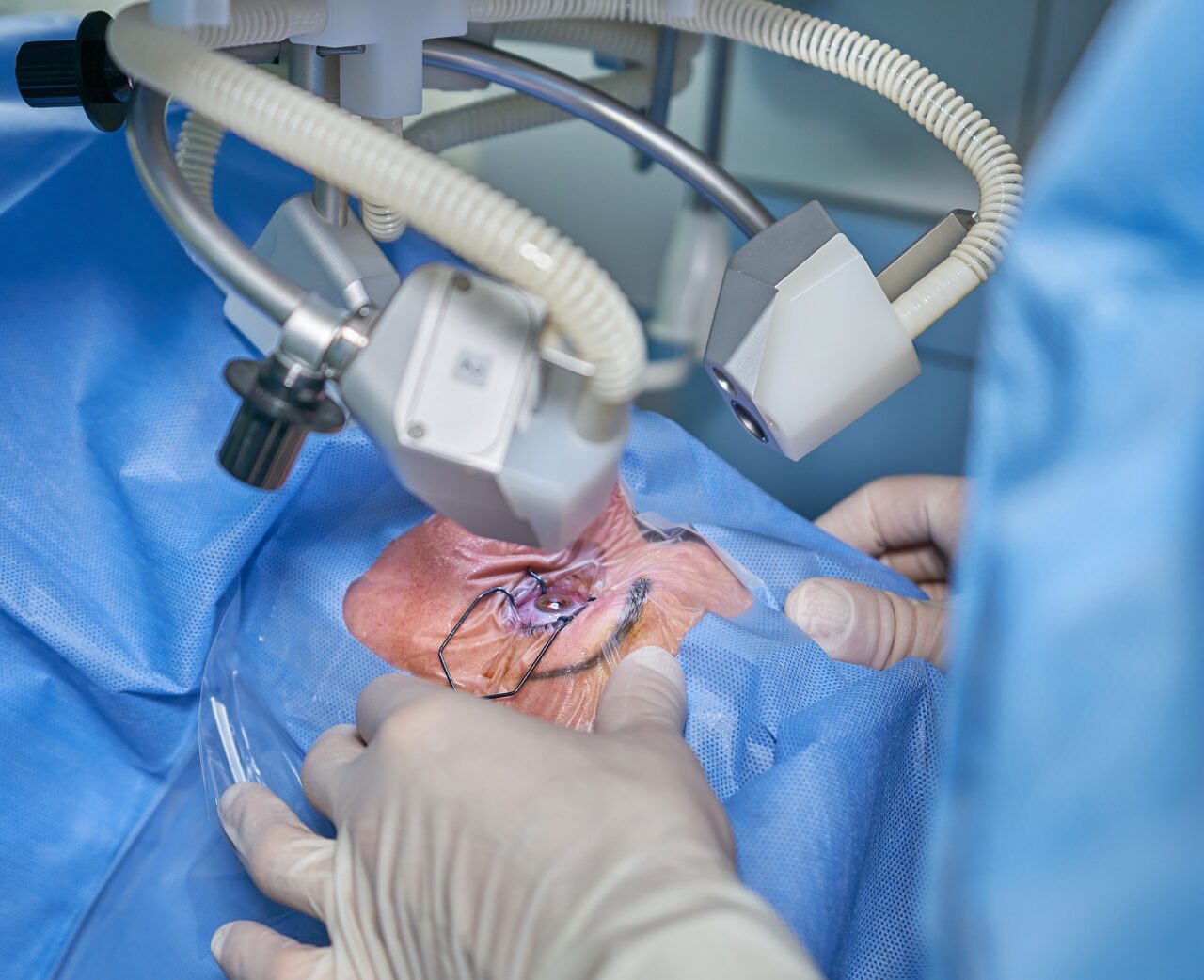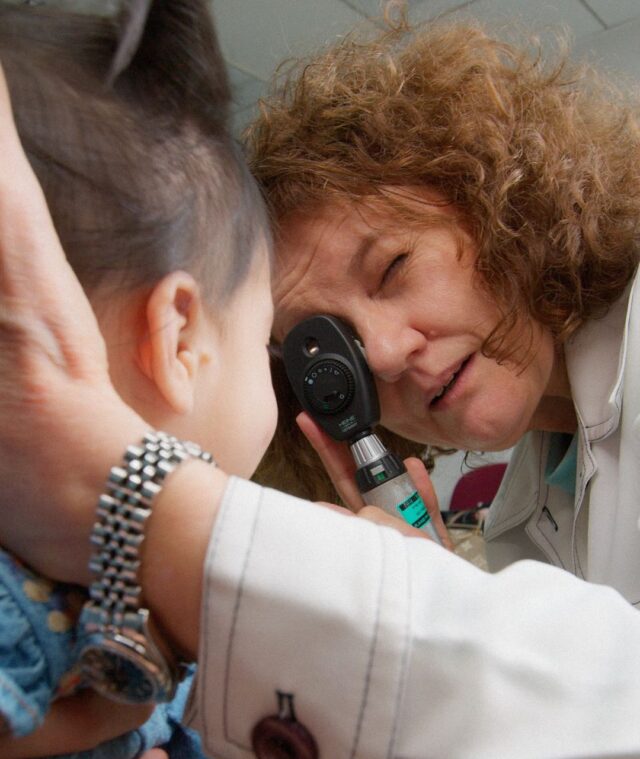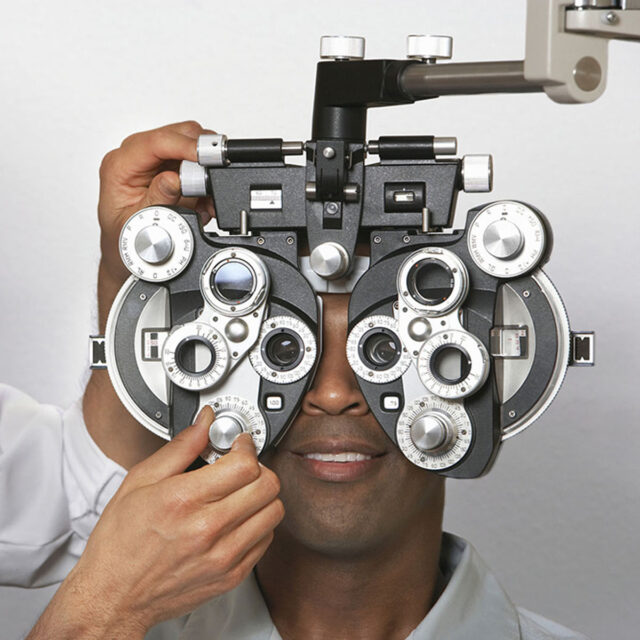Image credit – Image by Paul Diaconu from Pixabay
Blepharoplasty is widely known as a cosmetic procedure since it removes the puffiness underneath the eyelid skin, bags under the eyes, and extra skin and fine lines on the lower eyelids. It also improves the droopiness of the upper or lower eyelids.
This procedure can take years off your face and make you look younger.
However, a trusted eye specialist in Dubai says that the removal of the excess fat tissues, skin, and muscles from the eyelids, which is done through blepharoplasty, can also improve one’s vision.
This is because the draping skin on the eyelids can obscure or block one’s vision. Additionally, loose or drooping skin can create folds or alter the natural contour of the upper eyelid, which can sometimes affect a person’s peripheral vision.
However, ophthalmologists say that unlike keratoconus (a condition wherein the cornea thins and bulges, causing blurred vision and sensitivity to light and which can be treated in a non-surgical manner), droopy and loose eyelids can only be improved through surgery.
The blepharoplasty procedure involves making an incision in the skin across the eyelid, below the lashes, or the inner section of the lower lid, to remove or reposition excess fat and muscles.
The surgeon will also tighten the underlying tissues with sutures when needed. The last step involves closing the incisions with stitches or other wound closure techniques.
Although the results of blepharoplasty vary, you can expect to have brighter, tighter, and more open eyes a few weeks after the procedure. Aside from looking younger and more rested, your vision will improve since the skin causing the obstruction will have been removed.
Recovering After Blepharoplasty
Blepharoplasty surgery usually takes an hour for one eyelid and two hours for both the upper and lower lid.
Although the procedure is short, the post-op recovery can be quite long, which can take ten days to two weeks.
You will feel some discomfort during this time, including tightness and soreness on your eyelids, watery or dry, itchy, and sticky eyes, and sensitivity to light. You will experience blurry vision as well.
Following the right post-op care instructions and tips will help minimize these symptoms and speed up your recovery time.
These tips include:
1. Preparing for your post-op downtime
If you live alone, stock up your fridge and pantry with easy-to-prepare foods to avoid straining yourself from prepping and cooking.
Make sure you also buy plenty of fruits, vegetables, yogurt, and other healthy foods so you can get the nutrients your body needs to heal faster. Try to choose food you can eat raw or turn into smoothies or shakes.
Don’t forget to buy medicine and other items you need for your post-op recovery. You need to have your eye drops and ointments on hand and use them as prescribed by your doctor.
Lastly, make sure you have a cold compress, since you’ll need this to relieve the pain and swelling around your eyes.
2. Taking some downtime
All invasive surgeries require patients to take it easy for the next few days or even weeks so they have enough time to heal. The same applies to you when you undergo blepharoplasty.
Take time off your work or school for the next ten to 14 days. Avoid doing household chores and engaging in strenuous physical activities as well.
If there are urgent things you have to do, such as cleaning your home or doing some grocery shopping, have someone do those for you.
3. Protecting your eyes
Similar to getting laser eye surgery in Dubai, protecting your eyes after getting blepharoplasty is one of the most important things you have to do immediately.
Start by putting on dark sunglasses with large frames that cover your eyes from the sides as soon as you step out of the hospital or clinic, especially when you’ve had surgery during the day. You also won’t go wrong with wearing a hat for additional protection. Do these things whenever you go outdoors.Start by putting on dark sunglasses with large frames that cover your eyes from the sides as soon as you step out of the hospital or clinic, especially when you’ve had surgery during the day. You also won’t go wrong with wearing a hat for additional protection. Do these things whenever you go outdoors.
Make sure you also follow these additional tips for protecting your eyes:
- Avoid wearing makeup and applying facial cream for the next two weeks.
- Do not wear contact lenses for two weeks or until your doctor says it’s fine to do so.
- Keep water, shampoo, soap, hair dye, and other toiletries and cosmetic products away from your eyes for at least seven to ten days.
- Do not swim in beaches, pools, and hot tubs for one to two weeks.
- Avoid rubbing or putting pressure on your eye for the next seven days.
4. Resting your eyes
After getting home, make sure you rest your eyes to speed up their recovery.
Avoid watching TV, reading printed and e-books, and staring at your computer or handheld devices for at least a week post-surgery. These activities can cause you to have dry eyes, which can hamper your recovery.
Also, get at least seven hours of sleep at night to give your eyes and body more time to rest and heal. Take naps frequently throughout the day as well, particularly during the next seven days after surgery.
5. Following your surgeon’s post-op care instructions
Your doctor will give post-op instructions that you have to follow to the T to speed up your recovery and prevent complications. These include:
- Using the recommended eye drops or ointments as prescribed.
- Avoiding certain medications, such as ibuprofen and aspirin, temporarily.
- Applying ice compress on your eyes as recommended by your doctor.
- Cleaning your eyelids gently regularly.
- Avoiding smoking.
- Visiting your doctor based on your agreed-upon schedule.
If you don’t want to delay your recovery after getting a blepharoplasty, follow these post-op care tips. And make sure you see your doctor immediately if you feel any prolonged discomfort and other symptoms.
Speak with our specialists if you are experiencing any eye or vision issues.








